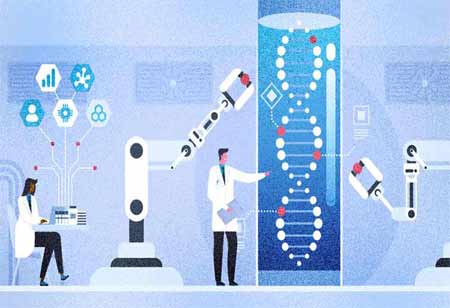Thank you for Subscribing to Healthcare Business Review Weekly Brief
Innovative Technology Solutions is Revolutionizing the Management of Healthcare Facilities

Be first to read the latest tech news, Industry Leader's Insights, and CIO interviews of medium and large enterprises exclusively from Healthcare Business Review
Thank you for Subscribing to Healthcare Business Review Weekly Brief

By
Healthcare Business Review | Thursday, August 29, 2024
Stay ahead of the industry with exclusive feature stories on the top companies, expert insights and the latest news delivered straight to your inbox. Subscribe today.
Technology significantly enhances healthcare facility management by improving operational efficiency, enhancing patient care, and ensuring regulatory compliance.
FREMONT, CA: Managing healthcare facilities involves a complex interplay of patient care, administrative efficiency, regulatory compliance, and resource optimization. Technological advancements have revolutionized healthcare facility operations in recent years, enhancing patient outcomes, streamlining operations, and improving overall efficiency.
Electronic Health Records (EHR) Systems
Electronic Health Records (EHR) systems have become foundational in modern healthcare facilities. These digital systems replace traditional paper records with electronic versions that can be accessed securely by authorized healthcare providers. EHR systems streamline data management, allowing for comprehensive patient information storage, retrieval, and sharing across different departments and healthcare settings. They enhance clinical decision-making, reduce errors, improve patient safety, and facilitate better continuity of care.
Telemedicine and Telehealth Platforms
Telemedicine and telehealth platforms have gained significant traction, especially after global health crises. These technologies enable healthcare professionals to deliver remote medical care, consultations, and monitoring services using telecommunications and digital tools. Telemedicine platforms support virtual visits, remote patient monitoring (RPM), and teleconferencing for multidisciplinary care coordination. They improve access to healthcare services, particularly in underserved or rural areas, while reducing the need for in-person visits and associated costs.
IoT and Smart Medical Devices
The Internet of Things (IoT) and innovative medical devices have transformed healthcare facility management by enabling real-time monitoring and data collection. IoT devices, such as wearable health trackers, smart beds, and medical sensors, continuously gather patient data, which is integrated into EHR systems for analysis.



